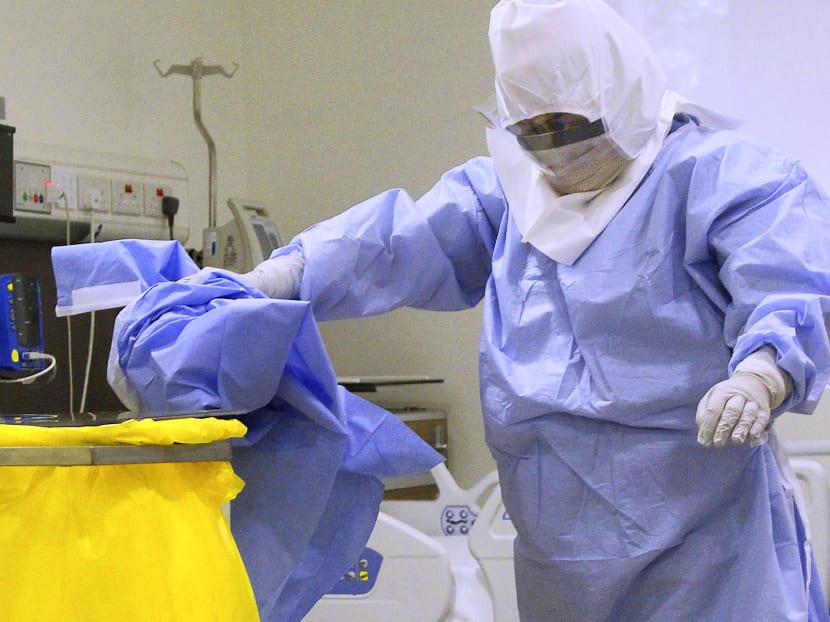MOH, TTSH step up on measures to protect healthcare workers against Ebola
SINGAPORE — With healthcare workers at greater risk of catching Ebola, the Ministry of Health (MOH) and Tan Tock Seng Hospital (TTSH) have stepped up on training and protective measures for staff, setting up a trained core team to handle any cases and conducting drills, on top of acquiring enhanced protective equipment.

Senior staff nurse Naw Hser Bwe demonstrates the proper steps to taking off the Personal Protection Equipment (PPE) and disposing of it, Oct 24, 2014. Photo: Ernest Chua
SINGAPORE — With healthcare workers at greater risk of catching Ebola, the Ministry of Health (MOH) and Tan Tock Seng Hospital (TTSH) have stepped up on training and protective measures for staff, setting up a trained core team to handle any cases and conducting drills, on top of acquiring enhanced protective equipment.
This comes after a series of cases in the United States, where medical staff caring for Ebola patients contracted the virus.
Speaking at a media conference today, TTSH — the hospital designated for handling Ebola cases here — said it has set aside 10,000 sets of enhanced personal protective equipment.
Each healthcare worker has to go through a 10-step procedure when donning the gear, which includes wearing two layers of gowns and 12-inch gloves, and getting a colleague to check that her equipment is in order, before entering the isolation area.
The protective gear is made of fluid-resistant material, and covers every inch of the worker, to ensure that he or she will not get into contact with a patient’s bodily fluids.
To reduce chances of contamination by suspected cases, dedicated facilities and equipment have also been set aside in the hospital, including 13 negative-pressure isolation rooms with strict infection control procedures, decontamination and waste management systems.
There is also a dedicated route in the hospital’s emergency department for moving suspected patients.
All healthcare institutions here, including hospitals, polyclinics and private clinics, have been put on alert to promptly refer suspected cases to TTSH.
MOH director of medical services Professor Benjamin Ong said Singapore must remain vigilant in light of how the virus has spread to countries outside West Africa in the last month, but noted that the spread can be contained with early identification and isolation of patients, and quarantine.






